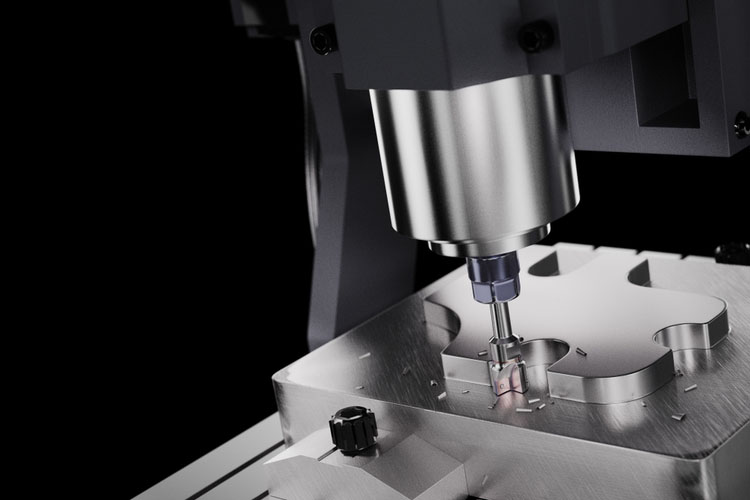The market landscape is shifting, with consumers increasingly seeking products that reflect their individuality and specific needs. This demand for personalization is transforming industries, pushing manufacturers to adopt advanced technologies to meet these unique requirements. Among these technologies, CNC (Computer Numerical Control) machining stands out as a key enabler of personalized customization, offering a blend of precision, flexibility, and efficiency that is unmatched.
The Role of CNC Machining in Personalized Customization
CNC machining has become the backbone of custom manufacturing, providing the precision and complexity required for high-end products. The technology involves using computer-controlled machines to remove material from a workpiece, shaping it according to the design specifications inputted into the system. Here are some key aspects of how CNC machining facilitates personalized customization:
High Precision and Complexity:
CNC machines can handle intricate designs and tight tolerances, which are often required in high-end industries. This precision is crucial for components that demand reliability and performance, such as in aerospace and medical applications.
Automation and Efficiency:
The automation aspect of CNC machining reduces manual intervention, leading to increased efficiency and consistency in production. This is particularly beneficial for industries where mass production of customized parts is required, such as in the automotive sector.
Flexibility and Customization:
One of the significant advantages of CNC machining is its flexibility to adapt to various designs and materials. This adaptability allows manufacturers to easily switch between different production runs, catering to the personalized needs of customers.
Integration with Advanced Technologies:
Modern CNC machines can be integrated with other advanced technologies such as AI, IoT, and big data, enhancing their capabilities in terms of predictive maintenance, real-time monitoring, and self-optimization.

Scalability:
As demand grows, CNC machining allows for scalability in production without compromising on quality. This is essential for manufacturers looking to expand their offerings while maintaining high standards.
Manufacturers Leveraging CNC for Personalized Customization
Manufacturers are embracing CNC machining to stay competitive in the market by offering personalized products. Here’s how they are utilizing CNC machining equipment for personalized custom services:
Investing in Advanced CNC Equipment:
To meet the high standards of precision and complexity, manufacturers are investing in state-of-the-art CNC machines that can handle multi-axis machining and complex programming.
Adopting Smart Manufacturing Practices: By integrating CNC machines with smart manufacturing systems, companies can achieve higher levels of automation, improved quality control, and better resource management.
Focusing on Research and Development:
To stay at the forefront of CNC technology, manufacturers are continuously investing in R&D. This helps them to innovate and improve their production capabilities, thereby enhancing their services in personalized customization.
Training and Skill Development:
As CNC technology advances, there is a growing need for skilled operators and programmers. Manufacturers are focusing on training their workforce to handle the complexities of modern CNC machinery.
Embracing Sustainability:
With the growing emphasis on sustainability, manufacturers are adopting environmentally friendly practices in their CNC operations, such as using energy-efficient machines and recycling materials.
Enhancing Customer Engagement:
Manufacturers are also leveraging digital platforms to engage with customers directly, allowing them to input their specific requirements and visualize the final product before production begins.
Optimizing Supply Chains:
To support personalized customization, manufacturers are optimizing their supply chains to ensure that materials and components are sourced and delivered efficiently, reducing lead times and costs.
Expanding into New Markets:
The capabilities of CNC machining are opening up new markets for manufacturers, allowing them to explore niche industries and cater to specialized needs that were previously unattainable.
Industries Influenced By Personalized Customization
Aerospace Industry:
In the aerospace sector, CNC machining technology is used to produce parts with strict tolerances and high precision requirements, such as aircraft engine components and satellite parts. Personalized customization allows manufacturers to produce parts according to specific performance requirements and design standards, thereby enhancing the performance and safety of aircraft.
Automotive Manufacturing:
The automotive industry utilizes CNC machining technology for prototype design, part customization, jigs and fixtures, and the production of small, specialized vehicles. Personalized customization enables automotive manufacturers to produce limited-edition cars and customized parts, meeting market demands for personalization and performance.
Medical Device Production:
The medical device industry greatly benefits from CNC machining technology, used for producing precision complex parts such as orthopedic implants, surgical instruments, and custom prosthetics. Personalized customization allows for the production of medical devices tailored to the specific needs and anatomical structures of patients, improving the effectiveness of treatments and the quality of life for patients.
Electronics Industry:
In the electronics industry, CNC machining technology is used to produce various precision parts for electronic devices, such as circuit boards, connectors, and casings. Personalized customization allows electronic manufacturers to customize products according to specific customer needs, driving product innovation and market competitiveness.
Raw Material Processing:
CNC machining technology plays a crucial role in the processing of raw materials such as metals, plastics, wood, ceramics, and glass. Personalized customization enables the raw material processing industry to produce custom-shaped and sized parts according to specific application needs.
Mold Manufacturing:
The mold manufacturing industry relies on the high precision and flexibility of CNC machining technology for the production of various complex molds, which are used for producing plastic and metal parts, among others. Personalized customization allows mold manufacturers to customize molds according to customer needs, improving production efficiency and product quality.
Agriculture:
In the agricultural sector, personalized customization of CNC machining technology can produce custom agricultural equipment and tools, such as harvesting equipment. This helps to increase the efficiency of agricultural production and the quality of crops.
Consumer Goods Manufacturing:
As consumer demand for personalized products increases, the application of CNC machining technology in consumer goods manufacturing is also becoming more widespread, such as personalized jewelry, clothing, and home goods.
Construction and Decoration:
In the construction and decoration sectors, CNC machining technology is used to produce custom architectural components and decorations, meeting the personalized and innovative design needs of architectural projects.
Personalized Services:
With the advancement of technology, personalized services such as tourism, health/fitness, weddings/photography, and parent-child/education are also beginning to adopt CNC machining technology to provide a more personalized and customized service experience.
In conclusion, the market for personalized customization is thriving, and CNC machining technology is at the heart of this trend. Its ability to produce complex, precision parts with high efficiency makes it an indispensable tool for manufacturers looking to offer tailored products to their customers. As technology continues to evolve, the role of CNC machining in personalized customization will only grow, driving innovation and excellence in manufacturing across various industries. With the continuous development of technology, it is expected that personalized customization will play an even greater role in more industries.



